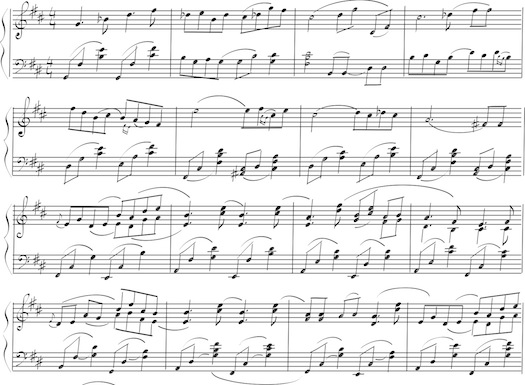“Cheese is milk’s leap towards immortality,” declared American writer, radio and television personality, Clifton ‘Kip’ Fadiman. Whilst probably referring to the genre of food, I bet you’ve also come across the way music is utilised as cheese in radio and television programs, segments and stings.
A dramatic bassline, rising strings, or even a touch of sentimental piano is just about enough to make any Masterchef contestant weep on cue, writes Joel Carnegie for radioinfo.
With the ‘golden age’ of storytelling upon us, the radio feature is fast being reborn as a popular and evocative method of telling a good yarn, with millions of listeners tuning into storytelling programs each week. Programs such as This American Life, RadioLab and equivalents across the world including programs arising from ABC Radio National’s newly created Creative Audio Unit are often discussed and deconstructed both in academic and professional circles.
But, are there any ‘golden rules’ about what role music should play in the development of stories? Are there even any ‘right’ answers?
For instance, should recorded music ever exist under the spoken voice? Is the role of music just to transition between scenes? How much is too much?
Do you cull songs with words? What is the musical landscape that is most appropriate for the story? Probably the answer is: it depends.
As one of the layers of the feature and documentary making process, recorded music has a wonderful ability to evoke emotion and movement. If we utilise the language of sound to communicate various themes, concepts, events or feelings – then we also need accurately reflect the reality of the story in respectful partnership with the work of the masters of musical composition.
On the one hand, music can be utilised to evoke a sense of curiosity, as almost an invitation to follow a story. Whilst at the same time, music can also create an emotional connection and ongoing bond with the listener, providing space is created for the listener to have his or her own responses to the story. But there is a fine line between supporting the story, characters and the listener through the journey and the potential for manipulation. Enter the cheesy cliché.
But, in moving away from our own inclinations for cheese, we can assist to reduce stereotypical reactions and/or predetermined emotional responses in the stories that we produce.
In this recent piece, Voices without Borders, produced for Life Matters on ABC Radio National, I worked through a process of reflection about which musical options offered fairness in representation in conjunction with what exact ‘vibe’ was required to push the story forward. I hope on some level I might have achieved this, however, the ultimate response now lies in the hands of the listener.
If music is an integral part of storytelling, and if storytelling is the vehicle that truly captures our imagination in this ‘golden age’, then it is our responsibility to ensure that we explore a colourful musical palate whilst representing reality in an authentic and innovative way. Perhaps then by extension, “storytelling could be radio’s leap towards immortality…”

Joel Carnegie is a Journalist/Presenter, Documentary Maker/Features Producer and Musician.
He is a freelance contributor for Radio National.

